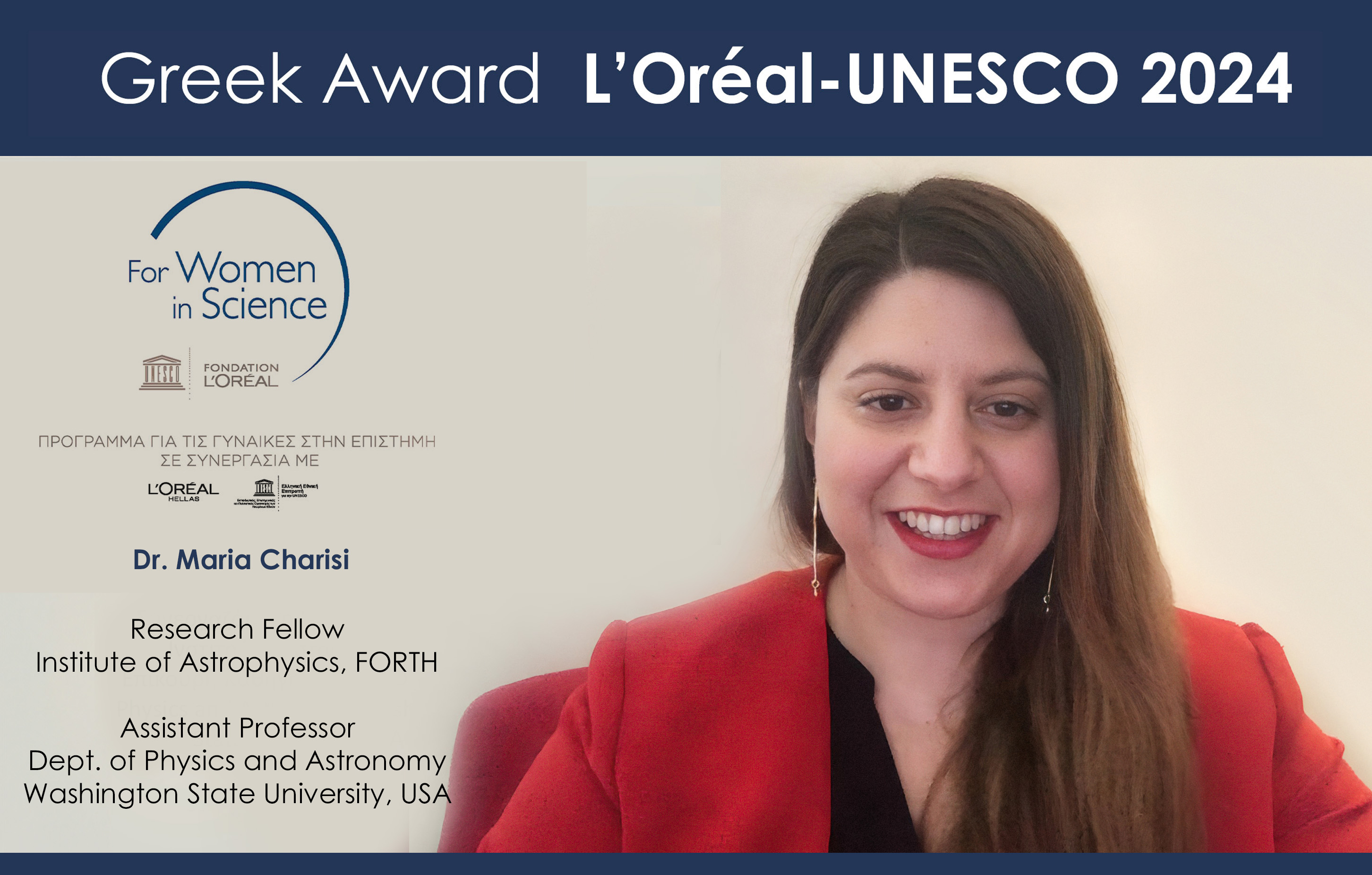Announcements

The 2024 L'ORÉAL-UNESCO Greek Award for Women in Science, in the field of Natural Sciences was awarded to Maria Charisi, Institute of Astrophysics, FORTH
Dr. Maria Charisi, Associated Research Fellow at the Institute of Astrophysics of the Foundation for Research and Technology-Hellas (IA-FORTH) and Assistant Professor at Washington State University, in the USA, has been awarded the 2024 L'ORÉAL-UNESCO Greek Award for Women in Science, in the field of Natural Sciences.

The Greek L'ORÉAL-UNESCO Awards (https://www.womeninscience.gr) are part of the international program "L'ORÉAL-UNESCO for Women in Science" which honors the contribution of distinguished Women Scientists for the continuation of their research activities.
The L'ORÉAL-UNESCO for Women in Science program is the only one in the world for women, a landmark of international scientific excellence, as well as an invaluable source of motivation, support and inspiration for women in science. Since 1998, women from more than 100 countries have been honored worldwide whose exemplary careers have produced new and sometimes revolutionary discoveries to improve the quality of life of millions of people.
The Greek L'ORÉAL-UNESCO Awards, established in Greece in 2006, are awarded to 3 Greek women scientists, aged 40 years or less, holding a PhD degree, who are engaged in Scientific Research in the fields of Life Sciences or Natural Sciences and are active in Universities or Research Institutions in Greece. The Awards are accompanied by a cash prize of 10,000 euros each. To date, 38 Greek women have been awarded, including 3 who are doing their research at FORTH.
Maria Charisi, who was awarded one of the three prizes of 2024, studied Physics at the Aristotle University of Thessaloniki and received her PhD in Astrophysics from Columbia University in New York, USA. With stops at the California Institute of Technology, and Vanderbilt University, USA, she came to FORTH in 2024 having received a highly competitive European Research Council ERC Starting Grant. She has already published 40 papers in peer-reviewed international journals and there are more than 4,000 references from other scientists to her work.
"I am excited and honored with this distinction. I would like to thank L’Oreal for this recognition. I would also like to thank my colleague at the Institute of Astrophysics, Prof. Pavlidou who encouraged me to pursue this.”, said Dr. Charisi.
Thanks to ERC funding of €1.7 million, Maria Charisi has started to set up a research group at the Institute of Astrophysics in order to detect, for the first time, double systems of supermassive black holes, which are rotating around each other and, in the process, emit gravitational waves. Double systems of supermassive black holes are thought to form frequently in the Universe when galaxies collide, as each massive galaxy has a supermassive black hole at its center, with a mass of a few million to a few billion times that of the Sun. However, after decades of research, these systems have not been detected by scientists. The method that the team of Professor Charisi will apply is based on combining the analysis of observations of gravitational waves detected as they affect the radio waves sent to Earth by rotating neutron stars, known as pulsars, with observations of changes in the optical brightness of distant quasars, which may have black holes at their centers.
The scientific problem is particularly challenging and the techniques developed by Professor Charisi and her team are based on innovative methods of signal analysis. As Professor Charisi says, the Institute of Astrophysics at FORTH is the ideal place to implement this project.








